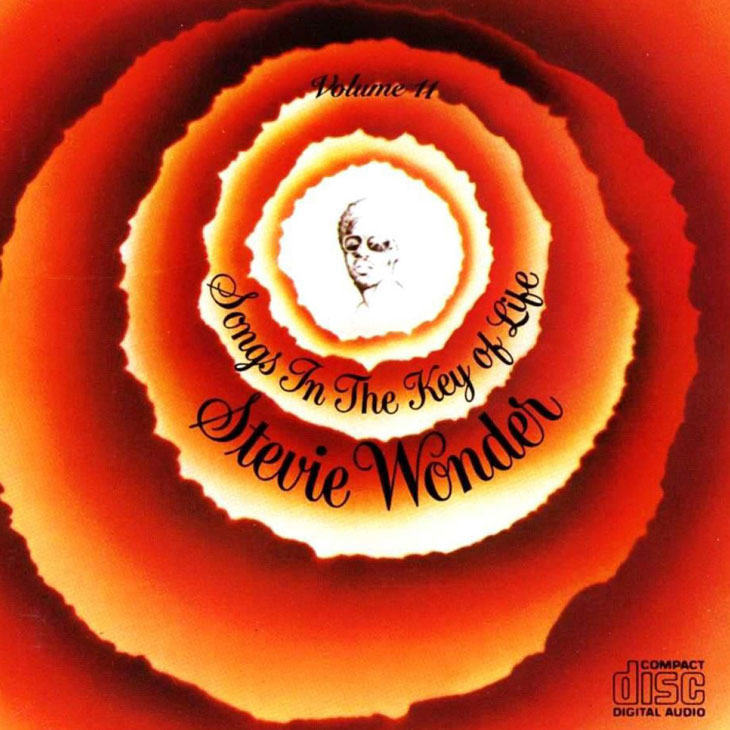Album #46: Songs in the Key of Life – Stevie Wonder
“Music is a language within itself, with a language we all understand”
Reality is a language: the sky is a continuous and halting semicolon; the wind is diction; grass springs as prosody; time and space are nouns writ large. If you want to be right with it, you simply have to listen. Stevie Wonder listens and understands the value of that ultimate cliché: love trumps hate, every time.
Of all the black artists in Acclaimed Music’s top 3,000 albums of all time, so far–a paltry three–Stevie Wonder is the closest to being a realist. Marvin Gaye despairs openly in What’s Going On; Public Enemy channels El-Hajj Malik Al-Shabazz (Malcolm X) with their militant frustration; but Stevie, with his caramel flavored R&B sits, somewhere between, and manages to love regardless.
The cuts that litter this album never avoid the truth: “Love’s in need of love today,” “Village Ghetto Land,” and “Pastime Paradise” all openly acknowledge, and to an extent, condemn the present state of hate with impassioned pleas for understanding. But the lyrics of sadness, or condemnation and parody are counter-balanced by moments of ecstasy, joy, and liveliness.
Stevie Wonder listens and understands the value of that ultimate cliché: love trumps hate, every time.
The various shades of existence make appearances. From exuberance on the unreasonably catchy “Sir Duke” to wistful on the ballad “Knocks me off my feet,” to the gentle lull of “Summer Soft,” to the celebratory “Isn’t She Lovely.” Wonder explores various genre and sounds with soft-jazz, hi-hat laden drums; chocolate covered bass lines; experimental and traditional keyboard work, and his soaring vocals.
In so doing, he creates a tapestry of life as it is. There is shit, there is good, and there is everything else. All the while, it’s obscenely catchy, and hip. It has the groove and feeling. But it never compromises its message in favor of any. It rounds the circle of Life’s Fifths.
This album has been in my life in some capacity for almost a decade, and I come back to it regularly for a few cuts. But it’s too long for me to sit and go through each beautiful track. With each listen, I gain more appreciation for Stevie Wonder’s ability to listen and observe. He notes, borrows, and plays, but he never speaks over. He invites you in, sits you down, and plays with you. At the end of the day, that may be how real change is accomplished.
Until I feel it all over.













